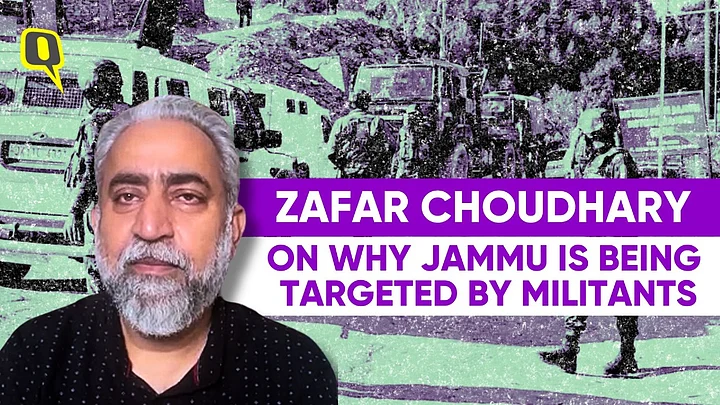In 1947, when Jammu and Kashmir decided to join the dominion of India, the decision was based on the ideals of the country's secular political vision. In addition to the Union’s undertaking, J&K was to be given complete liberty to decide on matters except the ones mentioned in the Instrument of Accession. This appealed to the sensibilities of the few leaders of that time, and they were assured that choosing India would be a better option to preserve their distinct identity.
There was, however, an attempt to control the freedom of thought expression, and political articulation through manipulation, surveillance, and other types of control. The autonomous position guaranteed by Article 370 of the Indian constitution was seen as a barrier to the completion of the unification project.
So, both the secular nationalists and the Hindu nationalists, in tandem, hollowed it out through dozens of Presidential Orders and rendered this provision almost useless. The gradual and institutional undermining of J&K's autonomous position was ensured by the Indian political class. The Hindu nationalists, however, started the political discourse around its “incomplete integration” by problematising Article 370.
5 August 2019 not only witnessed the unconstitutional and undemocratic scrapping of Article 370 on the floor of Parliament but also the jubilation of this tragedy across India like an imaginary enemy had been defeated.
Since then, the policies pursued by New Delhi via their appointed LG in Jammu and Kashmir are a grotesque repetition of the policies of Hari Singh, known for his taxation and other harsh initiatives. The central government has also invested in its repressive apparatus to muzzle any dissenting voices.
Through nefarious designs and policies, attempts have been made to disempower the people of J&K. To resist these policies, the mainstream parties need to promulgate a new people’s movement, the centrifuge of which should be the restoration of Statehood and Article 370.
But the people of Jammu and Kashmir are resisting, as was recently seen in the Lok Sabha elections, by showing the BJP their anathema (the Opposition’s share is much bigger than that of the BJP and its proxies). This gives the Opposition parties of Jammu and Kashmir a moral boost. The question is who will hold the baton and fight for the people? The answer is very simple — the two major regional political parties, the People's Democratic Party and the National Conference led by Mehbooba Mufti and Omar Abdullah respectively. But the decision of the heads of these two parties not to contest the elections has created dismay among the people of Jammu and Kashmir.
They decided not to be part of a disempowered assembly that would have to beseech the central government’s point man to get anything meaningful done. For the leaders of these parties, it would be a humiliating experience to enter the halls of such a degraded assembly.
But would it not then also be unjust to the masses of Jammu and Kashmir to vote for a disempowered assembly, that too in the first election in 10 years?
The position taken by the two leaders is flawed. They are the guardians of every vote cast. In fact, they will not be elected to beseech the point man of the central government. Their arguments should be suffused with the emotions of the people and they should turn the assembly floor into a furnace of grievances.
But currently, their statements can be perceived as individualistic and exclusive; all that matters to them are only themselves. For example, PDP's Mehbooba Mufti said on Saturday her party would leave all assembly seats for the Congress-NC alliance if it is ready to accept the former's agenda. NC Vice President Omar Abdullah accused the PDP of copying their manifesto and asked it not to field candidates against the Congress-NC nominees.
Their politics, thus, can be summed up as: “I, me and myself”.
In reality, their (Omar Abdullah and Mehbooba Mufti) political existence is tied to the masses of J&K. They are who they are because of the people who voted for them. If they refuse to lead the people in these tough times, they have no moral right to represent us during the good times.
(Irfan Gull is a political activist from Kashmir. This is an opinion piece and the views expressed above are the author’s own. The Quint neither endorses nor is responsible for them.)
(At The Quint, we question everything. Play an active role in shaping our journalism by becoming a member today.)




